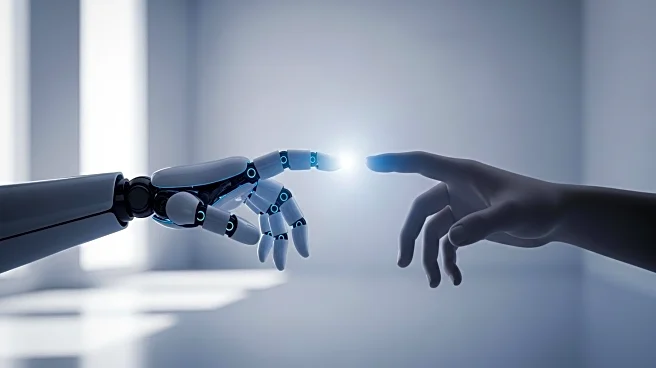What's Happening?
A recent exploration into the impact of AI on human interaction has raised concerns about the potential dehumanizing effects of relying on AI for personal advice and companionship. The investigation involved using AI platforms like ChatGPT to seek advice on regaining humanity, revealing that while AI can offer practical advice, it lacks the emotional depth and personal experience that characterize human interactions. The study highlighted how AI's engagement strategies might lead individuals to substitute real human connections with machine interactions, potentially exacerbating loneliness.
Why It's Important?
The increasing reliance on AI for personal and emotional support could have significant implications for societal well-being. As AI becomes more integrated into daily life, there is a risk that individuals may prioritize digital interactions over genuine human relationships, leading to a new form of loneliness. This shift could impact mental health, as people may lose the emotional support and empathy that come from human connections. Additionally, the AI industry's focus on engagement could drive further isolation, as people spend more time interacting with machines rather than with each other.
What's Next?
The future of AI in personal interactions will likely involve ongoing debates about ethical use and the need for balance between technology and human connection. Stakeholders, including tech companies, policymakers, and mental health professionals, may need to collaborate to ensure AI is used in ways that enhance rather than replace human relationships. There could be calls for regulations to guide the development of AI technologies that prioritize human well-being and ethical considerations.
Beyond the Headlines
The ethical implications of AI's role in human interaction extend beyond loneliness. There is a potential for AI to influence social norms and behaviors, as people may begin to model their interactions based on AI responses. This could lead to a homogenization of social interactions, where unique human experiences and emotions are undervalued. The challenge will be to harness AI's capabilities to support human development without compromising the richness of human experience.










